On this page:

Our Kids spoke with Żaneta Cornily, chair of the board, and foreign language methodology and art coordinator at Pro Futuro.
Our Kids: I know that the school has been operating for 25 years. How did you get involved and bring it to such a high level?
Żaneta Cornily: I wasn't the owner from the very beginning. It was an institution created by parents, run by an association, and later bought out by private investors. I bought it from a private investor who was more of a businessman than a teacher. That was four years ago, when the school was struggling with financial and organizational problems, but I was able to successfully solve these problems.
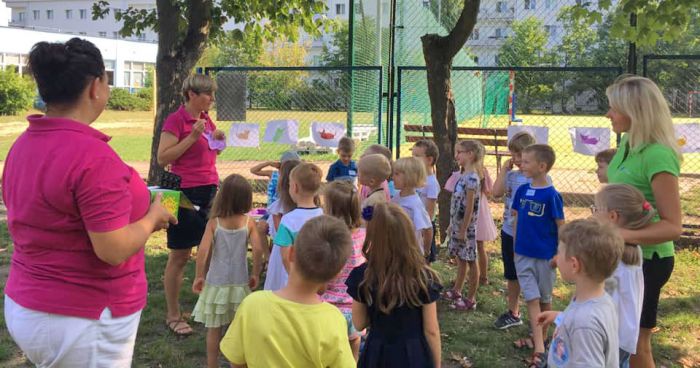
Teachers
Our Kids: It's not easy to find good teachers. Do you face the same problem at your school?
Żaneta Cornily: It's hard to find professionals, and those who are on the market aren’t always the best. Not everyone is a real teacher. I think that in Poland we should pay more attention to who becomes a teacher.
The issue of teacher turnover is a very big problem in schools today. I can say with satisfaction that in my school we don’t have this problem, and if someone leaves, it’s only for personal reasons, although I don’t overpay the teachers.
I focus on the development of education and the level of what we offer. Of course, teachers must have a decent salary, but there are many other factors that make teachers want to work—it's not just financial issues. Equally important are interpersonal relationships and, above all, values.
I’ve managed to reduce turnover to a minimum, because I provide teachers with development opportunities, transparency, stability, and the pleasure they get from their work. What you can read on our website, the richness of our offerings, is not a marketing gimmick—it’s true. I have wonderful teachers who are respected by parents and students.
Students
Our Kids: Is there a specific type of student that does best in your school and is especially suitable for it, or can every child be a good fit?
Żaneta Cornily: I think everyone can succeed here. We don’t accept children with disabilities, because we don’t have facilities or specialists, and that wasn’t our intention. We aren’t prepared for it, and I don’t want to do something that’s not well organized and prepared. We focus strongly on the quality of work, which doesn’t mean we have a rat race or that only school rankings interest me. If I had to choose between a child's mental or emotional health and the highest positions in the ranking, I would choose the former.
We are able to shape every child through the way we work, our teaching methods, and all our activities, so that all the kids will definitely benefit. We try to work on the students’ strengths. Our parents say: "I don't know what you did with him, but it's like aliens took him and gave him back as a completely different person."
Our graduates are prepared for independent life. We give children a lot of freedom, a lot of choice, but it’s all controlled. They’re given a lot of space—that’s what they need to open up and make mistakes from which they learn. Virtually every child who comes to us, comes out with a completely different life experience, not only with knowledge. We have good results, and I see these results in everything we do.
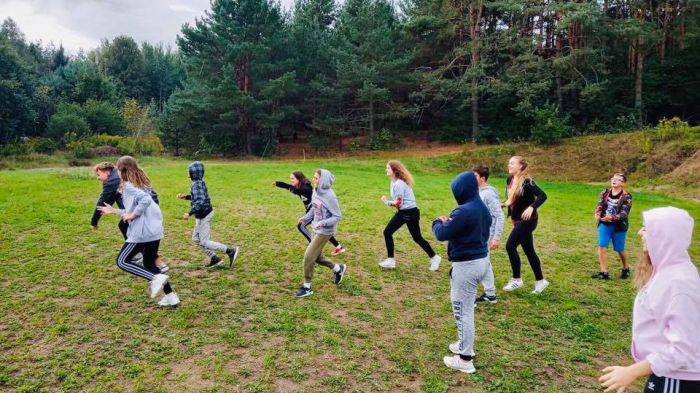
School philosophy
Our Kids: What is your school's philosophy?
Żaneta Cornily: School, whether public or private, has values it should pursue, not just the transmission of knowledge. If a parent is looking for a school that is guided by universal values and really implements them, and that can be seen at every turn, my school is just for them
We care about emotional, mental, and physical health, but we also teach relationships and pass on knowledge, because this is the role of the school and we care about the results. But I have a feeling these results are sort of starting to take care of themselves. Our education process is very well thought out. Our psychologist and educator work preventively, and thanks to that, we’re able to eliminate things we absolutely do not care for. And we care about the intellectual and emotional stability of children, because I believe these are dispensable for the kids to get off to a good start.
Relations with teachers make children see the sense of doing certain things. The whole educational process with us is very well thought out and every part of it matters. There are no gaps. Our children want to learn and enjoy going to school. And I think that this is the starting point of good education—to create conditions that make children feel safe and want to study.
It is fashionable to say that a child should be happy, so much so that some kids attend school mostly to socialize. I do not believe this—I believe in building relationships, but also in transferring knowledge in an appropriate and interesting way, so that children can absorb it and use it. The latter is not so obvious at all. It happens that young people have acquired a whole lot of theory, but sometimes they leave school and are unable to use what they have learned. We want graduates who will do well in life by using the knowledge and skills they mastered at school.
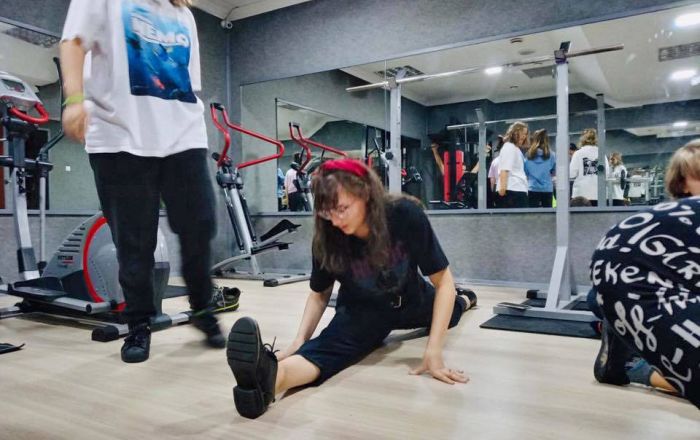
Unique features
Our Kids: Could you list a few elements that are unique to Pro Futuro and work especially well in your school?
Żaneta Cornily: At every stage of teaching, approach, attitude, and openness are certainly very important. That's why I talk a lot about teachers, because you can't have a good school without good teachers. Even if I had the best vision myself, if we did not have a coherent vision and did not create an environment that allows children to open up to our ideas, there wouldn’t be great results.
At each educational stage, openness is crucial, so the child feels safe and has a sense of emotional security, is not afraid of making mistakes or being wrong, talking and discussing. At the same time, we support children's strengths, e.g., through the "Leader" project, where the child chooses what he wants to be a leader in. Kids don't compare themselves to others, because not everyone does the same. Everyone chooses what they believe in and where their strengths are.
We have public presentations and mini-conferences that change children radically. Such meetings are important events for the child and his loved ones. The child wears a formal outfit. Twice a year, kids presents a summary of their achievements, just like adults, what they planned with their teachers. Individualized work is also carried out here, because teachers must work with each student individually. On the day of the mini-conferences, children invite their parents, family, or whoever they want, and present their achievements. The result is that children are more confident and can boast about something they did.
Certainly tutoring is our other unique project. We started high school this year based on this format. We have created a high school format with no traditional classes or form teachers. It's a "year," like at university. After some time, all children have the right to choose their tutor, who mentors them, gives them guidance, but also supports them—showing them the path.
Tutoring is a unique form of work, but also very demanding, both for the teacher and for the child, and of course, for us—the organizers. It’s a demanding format organizationally, because it needs to be properly structured, but it’s also financially challenging. Running a regular high school with classes and profiles is easier. We offer up to five possible extended programs, while the Ministry’s regulations oblige us as a school to offer only two.
Our Kids: There are no classes, no profiles. Does this mean that for four years of high school the students will only be taught via tutoring? There will be no common activities where students work as a whole group?
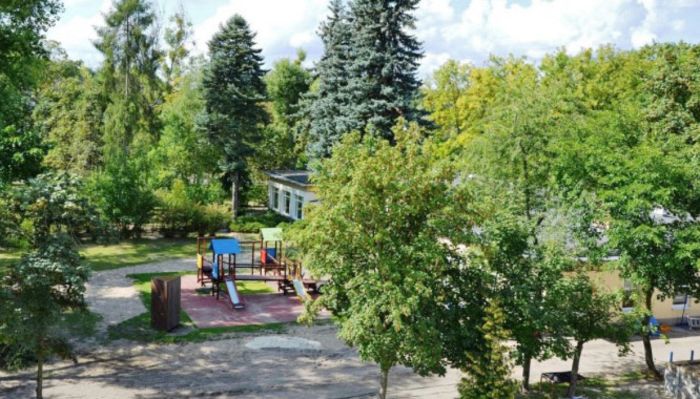
Żaneta Cornily: There will be group sessions. We must conduct classes that are in the core curriculum. We work from 7:30am to 6:30 pm—the school is open during these hours. The actual classes take place from 8:30am to 3:20 pm, 7 hours a day (35 hours a week). The core curriculum takes much less time, so in addition to implementing what’s required, we have time for other activities. Some classes are taught to groups of children, and some are run by a tutor.
Our Kids: Doesn't tutoring mean one-on-one?
Żaneta Cornily: Tutoring means individual guidance of the student, while classes sometimes take place for all the kids in one year, sometimes in groups, or individually if a student was the only one to choose the subject. Individual meetings with the tutor, on the other hand, are held twice a month. Each teacher has time reserved for tutoring, and knows how to guide their students. Our teachers are trained to work with the tutoring method.
Our Kids: I read that children do not have homework, and do homework at school.
Żaneta Cornily: They have the opportunity to do their homework at school. Homework is given, because we know certain tasks are important and we are well aware that children will not remember everything. We never assign homework for homework’s sake, just to give an impression that the teacher was doing something. It also never involves rote tasks—it must always be creative, i.e., have a form that stimulates children.Languages
Our Kids: Are children completely bilingual after graduation?
Żaneta Cornily: Yes, they are. We have a lot of classes in English, where the language is treated as a tool, i.e., we teach children the language because they must develop it to be able to communicate. We also have a lot of classes where the language is used to study other subjects. And that's why language is not a barrier to communication. Children communicate beautifully. They are open and have no linguistic or personality barriers.
Our Kids: You also offer Italian.
Żaneta Cornily: I managed to get on board Italians from the other end of Warsaw. Ours is actually the first educational institution that offers an extended course in Italian at the primary school level. It is important for me to create a bilingual Italian class. I have the support of the Italian Embassy and Ambassador, as well as the Italian Institute in Warsaw and Kraków, but children happen to be of different ages and such a class has not been created yet.
Achievements
Our Kids: What are your most significant achievements? What are you most proud of?
Żaneta Cornily: Children say they love our school. For me, the biggest success is that I’ve managed to create a system where children want to make an effort, want to be with us, want to develop, search, ask, learn—just be. We create a community, very family-oriented, which does not mean that there are no rules and that we do not enforce them. And I think this is the biggest success, because we know very well that when someone requires something from us, it is harder to accept, especially among children and young people. We do have our requirements. And yet the students love us and our school.
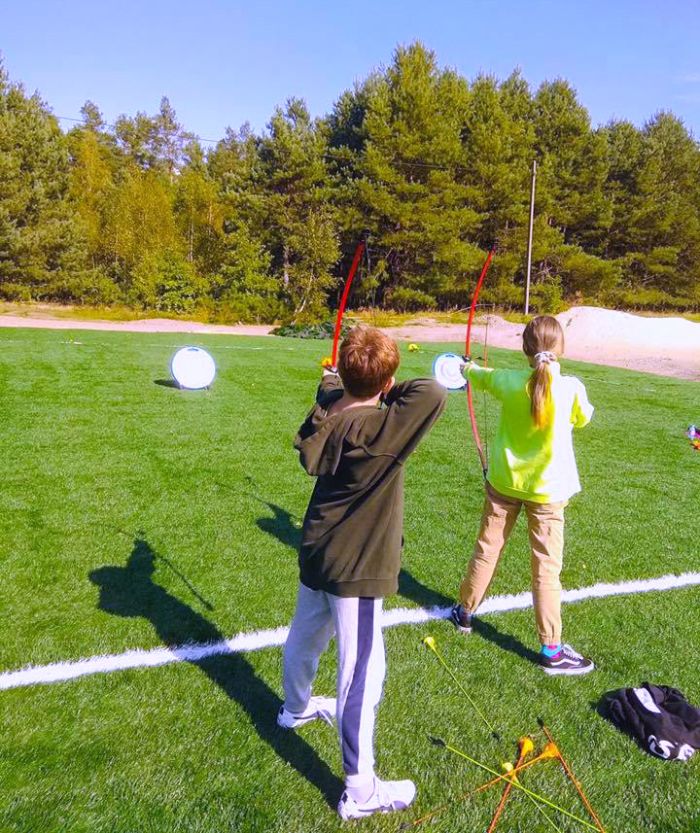
I also consider it a success that during a difficult period in education, we managed to achieve a situation in which we have real communication. I always tell my parents that they have the right to their own opinions, fears, visions, or misunderstandings, but what I am asking for is direct communication, that they come to the source, and not complain about their concerns somewhere else. The relationship between parents and us is completely different than in other institutions. This is definitely a success, besides all tangible results.
The next success is that we are developing, that is, there are more and more children, that we have more and more trips abroad, projects, and new languages. I introduced Italian when I appeared, but in high school I offered Chinese and Japanese. Already during recruitment, it turned out that there are children interested in these languages.
The success is that although there are so many activities, we are able to control them organizationally and there is no chaos.
A teaching staff in which there is no turnover apart from urgent life situations is really a great achievement in today's education.
Challenges
Our Kids: And the difficulties and challenges?
Żaneta Cornily: As I said, finding good teachers and keeping them in line with our values.
People who read this also viewed:
- Warsaw private schools
- Kraków private schools
- Poznań private schools
- Wrocław private schools
- Łódź private schools
- Rzeszów private schools
- Gdańsk & Gdynia private schools
-
Advice Guide
- ABC of educational terminology: Glossary of terms and concepts
- The admissions process
- Advantages and disadvantages of studying in an international school
- The application process
- Benefits of Polish private schools
- Bilingual schools
- Boarding schools
- Choosing a private or nonpublic school in Poland
- Compare schools in Poland
- English schools in Warsaw
- Homeschooling
- International schools in Kraków
- International schools
- Private school interviews
- Music education
- Myths about private education
- Non-public schools in Poland
- School open houses
- Our Kids Interview: Get to know EF Academy Oxford
- Our Kids Interview: Get to know Open School
- Our Kids interview: Get to know Regent College International Schools
- Our Kids Interview: Get to know The American School of Warsaw
- Our Kids Interview: Get to know The British School Warsaw
- Our Kids Interview: Get to know Wrocław Cosmopolitan School (two interviews, new video)
- Poland school profiles
- Private day schools
- Gifted schools & programs
- Private Jewish schools in Poland
- Language schools
- Private school tuition and costs in Poland
- Private schools in Poland
- Private schools in Poland offering French-language immersion
- English immersion schools
- Poland school uniforms
- Private special needs schools in Warsaw
- Public versus non-public schools in Poland
- Private school questions
- Private school rankings
- Reasons for choosing private schools - Our Kids’s survey report
- Religious schools
- Schools and classes for children with ADHD in Poland
- Social primary schools
- Social Schools
- Special educational needs (SPE) certificates
- Special needs schools
- Study abroad at a private school
- The first annual non-public school fair in Poland
- The first annual Our Kids non-public school expo in Warsaw was a great success
- Third Private School Expo in Warsaw - summary
- Types of schools
- Types of schools in Warsaw
- Warsaw preschool costs
- Why private school?
- Why parents go private
-
Grades
- Boarding high schools
- Choosing a high school in Poland
- Mokotow High School Campus - a new Warsaw high school and Thames British School campus
- Montessori nursery schools
- Montessori preschools
- Our Kids Interview: Get to know English Montessori School Katowice
- Our Kids Interview: Get to know FSA School
- Our Kids Interview: Get to know KIDS & Co.
- Our Kids Interview: Get to know Polish British Academy of Warsaw
- Our Kids Interview: Get to know The English Playhouse and The English Primary
- Poland education: grade levels
- Preschools in Warsaw
- Private & non-public preschools
- Private & non-public primary schools
- Private bilingual elementary schools in Warsaw
- Private high schools
- Private high schools in Warsaw
- Private middle schools
- Nursery schools
- Private primary schools in Warsaw
- Social high schools
-
Locations
- Boarding schools in Warsaw
- English schools in Kraków
- International Baccalaureate (IB) schools in Warsaw
- International schools in Warsaw
- Montessori schools in Warsaw
- Non-public schools in Warsaw
- Our Kids Interview: Get to know EF Academy
- Our Kids interview: Get to know Excellence in Education better
- Our Kids Interview: Get to know PRIMUS Non-Public Primary School No. 47 and Non-Public Secondary School
- Our Kids Interview: Get to know the Canadian School of Warsaw
- Our Kids Interview: Get to know The Primary and Secondary Schools of the Sisters of Nazareth in Warsaw
- Private Catholic and Christian schools in Warsaw
- Private day schools in Warsaw
- Private language schools in Warsaw
- Private schools in Bialystok
- Bydgoszcz schools
- Częstochowa schools
- Private schools in Gdańsk & Gdynia
- Katowice schools
- Private schools in Krakow
- Lublin schools
- Olsztyn schools
- Private schools in Poznań
- Private schools in Rzeszów
- Szczecin schools
- Private schools Warsaw
- Private schools in Wrocław
- Zielona Góra schools
- Private schools in Łódź






 POL
POL CAN
CAN